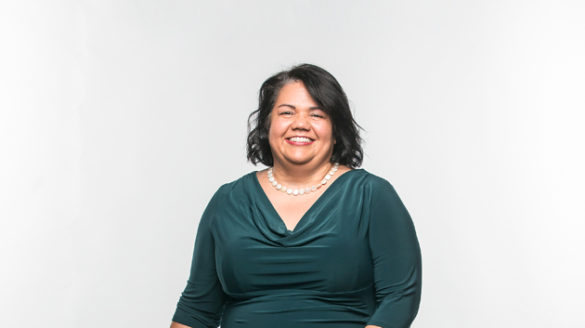
A self-described “medical geographer,” Yolanda J. McDonald begins each new research project with the “where” of things, before getting to the who, what, when and how.
Specifically, McDonald applies a geographic lens to questions about health disparities, examining how race and ethnicity, socioeconomic status and where people live affect their physical health.
A key area of interest is cervical cancer, a mostly preventable disease that claims the lives of about 4,000 American women each year. She wants to know why.
“I have found it hard to understand how women in the United States are still dying of cervical cancer when the U.S. has the resources to eradicate it,” she said. “In examining this phenomenon, the variables that interest me are access to preventive cervical cancer health care services, travel distance and travel time as well as rural versus non-rural residence.”
McDonald collects relevant data while drawing on the theories of intersectionality and geographic information science to uncover how physical environments are shaped by cultural and institutional factors, and in turn, how they affect health landscapes.
Ultimately, I’m trying to make a positive impact on women’s health and provide policy decision- makers with evidence-based research that promotes improved health outcomes and lowers costs.
“[rquote]Ultimately, I’m trying to make a positive impact on women’s health and provide policy decision- makers with evidence-based research that promotes improved health outcomes and lowers costs,”[/rquote] she said.
It’s not surprising that this scholar of geography has lived all over the world, including seven U.S. states plus Mexico, Brazil, Argentina, the U.S. Virgin Islands and Indonesia.
“I identify with all of these places, so when asked, I say I am from many places rather than just one locale,” she said. “I enjoy cooking cuisine from all over the world, so within the first week of moving to Nashville, I had visited many of the international markets on Nolensville Pike.”
An avid gardener, bird watcher and Scrabble player, McDonald is eager to explore and find her place in Nashville. But, she says, she already feels at home in terms of her philosophical approach to research.
“I look forward to collaborating with faculty and students at Peabody, the Vanderbilt Institute for Energy and Environment, the Vanderbilt Institute for Global Health and the School of Medicine,” she said. “I believe that complex problems require the use of multiple theories and methods, and Vanderbilt embraces that research philosophy too.”
View the complete list of new Vanderbilt University faculty for 2017-18.